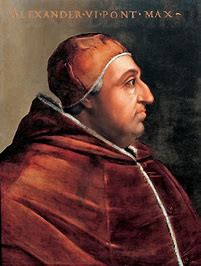Keane Week 11: A Vulnerability to Corruption
One of the many reasons people are in power is because we, the public, trust them. We have judged their character and qualifications, and have shown support by buying their product, services, subscribing to their ideas, or voting for them. Any politician would not be where they are without their supporters, who have believed in their policies. In many ways it is an exchange, called the Social Contract by Jean-Jacques Rousseau during the French enlightenment. In return for the people’s support, we assume the politician will have our best interest, and advocate policies we want.
But a reoccurring theme with such status, especially when the individual has earned the trust of millions and accrued a lot of favor, is the human greed and self-interest that leads to corruption. There are many forms, including embezzlement, nepotism, cronyism, and bribery, but all stem from an unwarranted position of power which enables them to pursue their own values. By trusting an officer with campaign or policy donations, you are assuming they will spend the money on community policies, and not themselves. Someone with such high status will surely not promote only his relatives, or accept bribes in exchange for law changes, or buy stocks knowing insider information. Or at least, we hope they would not. In reality, not only is it likely that at least a percentage of current politicians practice corrupt behavior, but it has been going on for centuries.
The 1500s reformation attempted to stop one of the largest areas of mass corruption - the Catholic Church. Officials that preached for charity, philanthropy, honesty, and love regularly practiced nepotism, excepted bribery, and embezzle donations that supposedly were going to the church. Even the pope, Pope Alexander VI, promoted only his nephews, or those that would vote for him, to bishops, and used many donations to throw extravagant parties, where he also hosted his multiple concubines (Religious officials were supposed to be strictly chaste).
It is arguably easier to become corrupt with more power. A student going door-to-door for a school fundraiser would not be tempted to embezzle the 10 dollars he earned selling cookies and popcorn, because the small reward of pocket cash does not outweigh the risk of getting caught. However, when you are part of the government managing funds of millions, pocketing some hundred thousand is worth it, especially if it is unlikely,
you would get caught. Power ironically can corrupt those who we have trusted the most, so it is always necessary to be aware of those holding such positions.

Hi Keane! The introduction of your blog was helpful and tied well into the next section of the blog with its transition that related to the two topics. The inclusion of prominent historical figures like Rousseau with the example of “the Social Contract…during the French enlightenment” and Pope Alexander VI to exemplify the practices like “nepotism…,bribery, and embezzl[ing] donations that supposedly were going to the church.” With these examples of evidence, you bring up an interesting point. Your statement “It is arguably easier to become corrupt with more power” uses the example of the door to door fundraising of the student to clearly articulate this argument to support your point on the ironic nature of power, corruption, and trust.
ReplyDeleteHi Keane,
ReplyDeleteYour introduction was skillful in gaining the reader's attention through a thorough explanation of humanity's trust in political figures which translates to their rise in power and I enjoyed your connection to the social contract by Jean-Jacques Rousseau since it helped strengthen your argument. I agree that corruption and bias in politics is a major problem that must be combatted and I feel it can also apply towards the college admission process. College's tendency to prefer legacy students and children of donors leads to an unfair advantage for children who come from wealthier backgrounds. I remember learning about the Catholic Church's reforms and the effort it took to create change in the church's corrupt practices, and I agree that this situation reflects human vulnerability to corruption since the Church had been manipulating worshippers for years until then through indulgences. Finally, I agree that power is the largest factor contributing to corruption since I feel the more power someone has, the more effort they will take to maintain it even if it means taking corrupt measures to achieve their goals, such as executive decisions to partake in child labor for cheaper wages in manufacturing businesses.